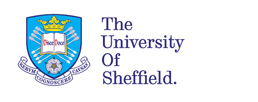LivePerson
The LivePerson Centre for Speech and Language Technology
The LivePerson Centre consists of members of the Speech and Hearing (SpandH) research group and its subgroup on Machine Intelligence for Natural Interfaces (MINI) in the Department of Computer Science of the University of Sheffield.
The Department of Computer Science has an international reputation for the quality of its research as confirmed by its performance in the most recent Research Excellence Framework audit (REF – the UK Government’s national assessment of university research) in which 92% of our research work was rated world leading (4*) or internationally excellent (3*) in terms of its originality, significance and rigour. The Department ranks 5th out of 89 computer science departments in the UK. Its world-leading research groups in Speech and Hearing and Natural Language Processing have extensive collaboration with leading academic institutions and industry, from global players to start-ups and larger SMEs. Its graduates are typically working in postdoctoral or academic positions, or in research groups in industry, such as Microsoft, Amazon, or Google.
SpandH is amongst the largest speech research groups in the UK, with 9 academics and over 40 post-doctoral researchers and PhD students. The group is internationally known for its research covering core speech and hearing technology and applications of speech technology in healthcare and robotics.
The MINI group has currently 13 members that meet regularly and discuss research topics. The subgroup is known for speech recognition and classification. It developed systems that performed best in international competitions and that are publicly available at www.webasr.org. It has been involved in several large national and international projects, collaborating with world-leading research groups such as the Universities of Cambridge, Edinburgh, Berkeley, and the Nagoya Institute of Technology. It can provide a high-quality research environment including advanced computing facilities, a large collection of data, systems, and recording facilities for realistic environments.
Centre for Doctoral Training (CDT)
The Department of Computer Science at the University of Sheffield also hosts the Centre for Doctoral Training (CDT) in Speech and Language Technologies (SLT).
Centres for Doctoral Training (CDTs) bring together diverse areas of expertise to train engineers and scientists with the skills, knowledge and confidence to tackle today’s evolving issues, and future challenges. They also provide a supportive and exciting environment for students, create new working cultures, build relationships between teams in universities and forge lasting links with industry.
Students are funded for four years and doctoral programmes include technical and transferable skills training, as well as a research element. We are funded by UKRI, the University of Sheffield as well as industry.
The UKRI Centre for Doctoral Training in Speech and Language Technologies (SLT) opened in 2019 and will host 60 students over a period of 8 years.
The CDT goes far beyond standard research training. Students undertake a unique Doctor of Philosophy (PhD) with Integrated Postgraduate Diploma (PGDip) in SLT Leadership programme.
Students and industry work with a team of over 20 internationally leading SLT researchers, covering all core areas of modern SLT research within the context of a PhD project. These projects are underpinned by a real-world application defined by our industry partners.
Current Research Topics
- end-to-end speech recognition with CTC and transformers
- direct waveform modelling using GANs
- self-supervised learning and self training algorithms (BERT style)
- multilingual speech recognition
- autoregressive models for representation learning
- clustering with variational auto-encoders
- long-term semantic models of conversations


